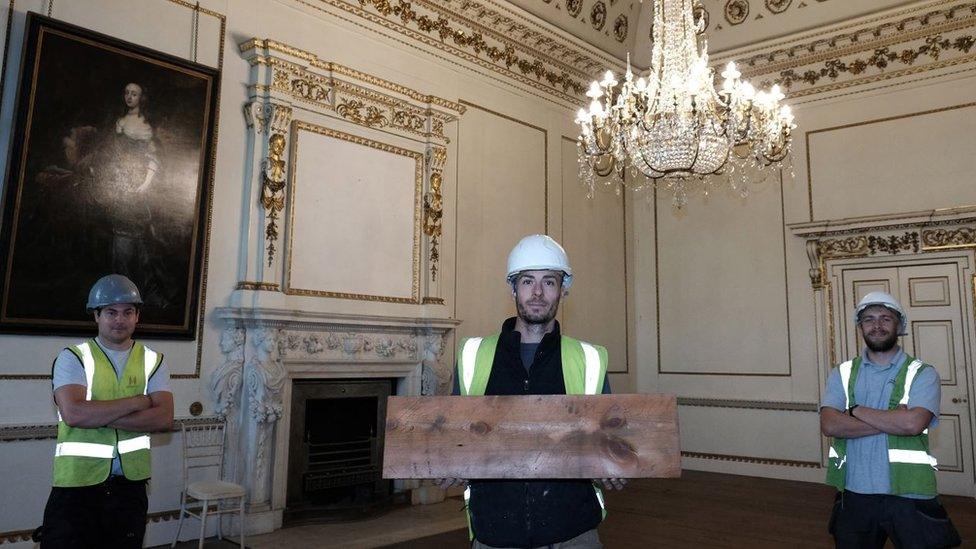Stainborough Castle bats protected during conservation work
- Published
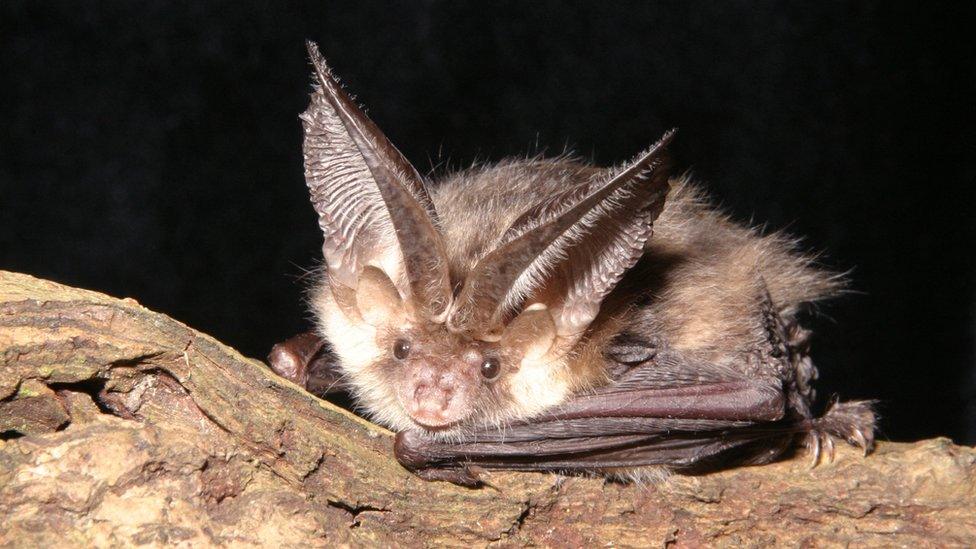
The castle is home to four species of bat, including the brown long-eared bat
Conservation work on an 18th century castle has been scheduled around the pregnancy of bats in the structure.
Stainborough Castle in South Yorkshire, where work is taking place to protect a turret, is home to four species of bat.
The operation has been timed so it doesn't affect the maternity roosts of the brown long-eared species.
Bats are protected animals with rules in place to safeguard their roosts during conservation works.
The castle was built by Thomas Wentworth in 1708 to impress friends and visitors following a feud with family members at the nearby stately home, Wentworth Woodhouse.
Robert Bell, principal ecologist advising the project taking place in Wentworth Castle Gardens, said the site was used by bats all year round, including noctules, common pipistrelles and Natterer's bats as well as the brown long-eared species.
He added: "The castle surroundings offer an abundance of eating options and offer the bats lots of different dark and dry places to rest up within.
"We are timing works so the brown long-eared bats are not disturbed in their maternity roost locations."
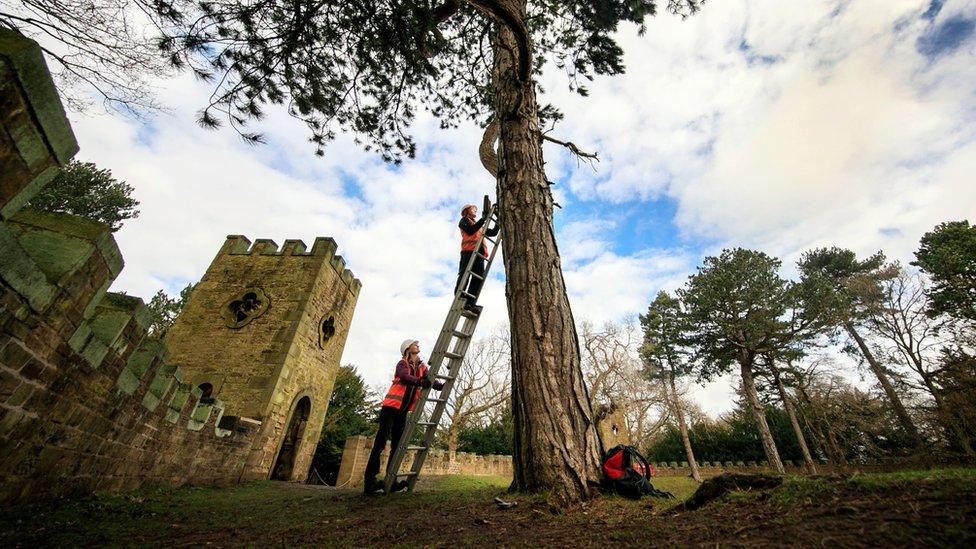
The work at the the 18th Century Grade II listed castle is expected to take five months
Specialist bat boxes have been placed around the site and an ecologist is at the castle each day to ensure the animals are not disturbed.
The conservation work, which began earlier this year, aims to restore and preserve the remaining parts of the castle, after it fell into disrepair at the turn of the last century.
A Natural England European Protected Species licence is needed to ensure certain animals, like roosting bats, are not disturbed during work at some sites.
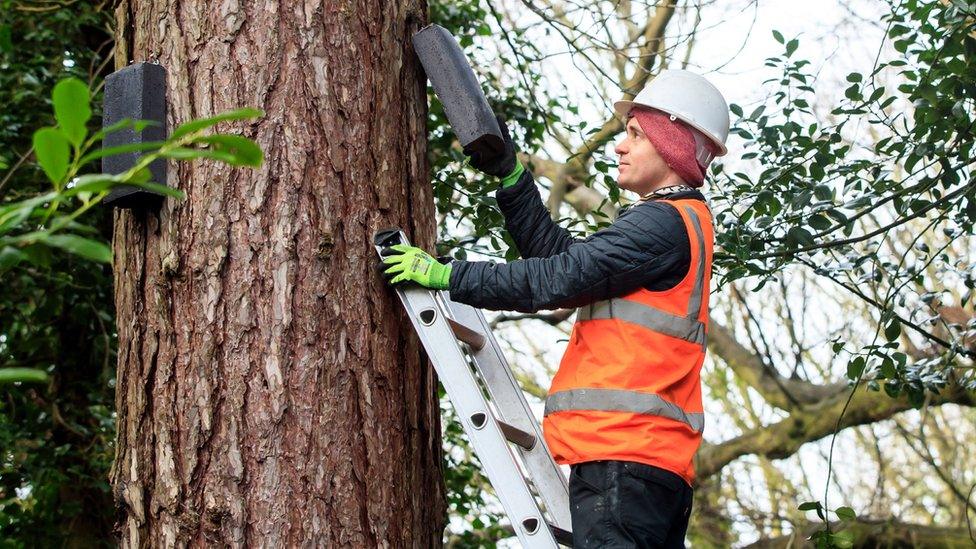
Bat boxes have been installed around the site to minimise the impact conservation work will have on the animals
The roosts within the castle are to either be kept or re-created, to ensure the animals continue to live at the site in the future.
The work is expected to last about five months and is funded by Barnsley Council, which co-runs the site with the National Trust.

Follow BBC Yorkshire on Facebook, external, Twitter, external and Instagram, external. Send your story ideas to yorkslincs.news@bbc.co.uk, external.
- Published11 December 2020
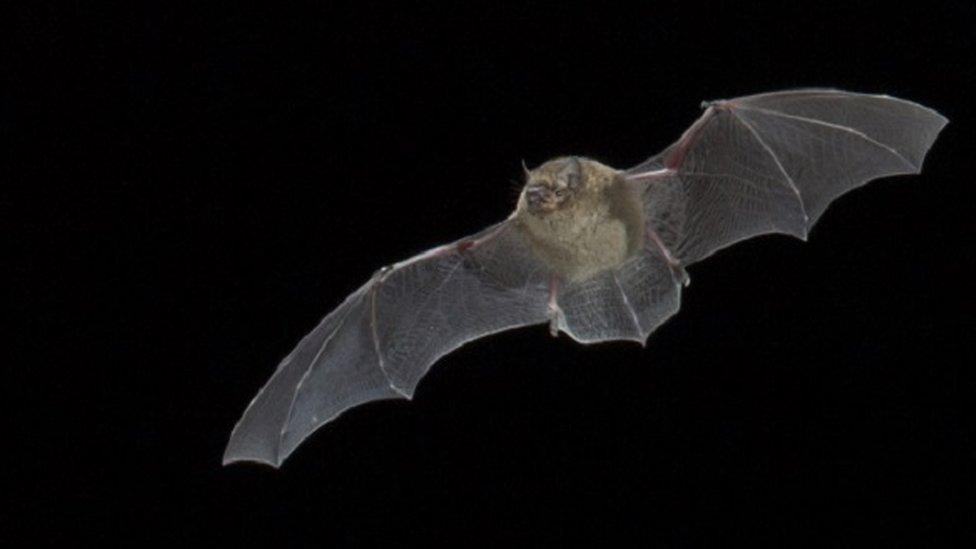
- Published8 July 2020
